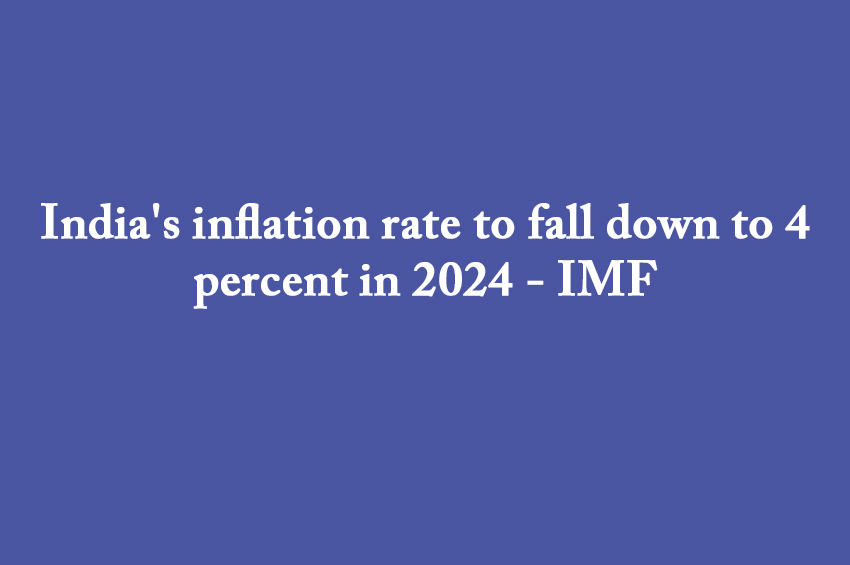Winning Bizness Desk
Mumbai. The International Monetary Fund (IMF) has predicted inflation in India to decline from 6.8 per cent in the current financial year ending March 31 to 5 per cent in the next financial year and then to 4 per cent in 2024. Daniel Leigh, division chief of the IMF's research department, said that like other countries, the inflation rate in India is expected to come down from 6.8 percent in 2022 to 5 percent in 2023 and then to 4 percent in 2024. About 84 percent of countries are expected to have lower inflation rates in 2023 than in 2022. The global financial situation has also improved due to a slight reduction in inflationary pressure. Along with this, emerging and developing countries have also got some relief after the US dollar softened from November's high. In the December quarter, the US economy registered a growth of 2.9 per cent, surprising the analysts. Among other major economies, only the UK is projected to slip into recession (minus 0.6 percent) in 2023, while Germany is projected to grow by 0.1 per cent and Russia by 0.3 per cent.
Due to fall in international fuel and non-fuel commodity prices
According to the IMF, the global inflation rate is expected to fall from 8.8 percent (annual average) in 2022 to 6.6 percent in 2023 and 4.3 percent in 2024. Estimated deflation partly reflects a fall in international fuel and non-fuel commodity prices due to weak global demand. The IMF said that also reflects the tightening effect of monetary policy on inflation, which is expected to decline globally from 6.9 per cent in Q4 2022 (y-o-y) to 4.5 per cent by Q4 2023. The annual average inflation rate is expected to come down from 7.3 percent in 2022 to 4.6 percent in 2023 and 2.6 percent in 2024. The IMF said the projected annual inflation rate in emerging markets and developing economies has declined from 9.9 per cent in 2022 to 8.1 per cent in 2023 and 5.5 per cent in 2024, higher than the pre-pandemic (2017-19) average of 4.9 per cent. In low-income developing countries, inflation is projected to decline from 14.2 percent in 2022 to 8.6 percent in 2024.
Energy crisis less than expected
Pierre-Olivier Gaurinchas, Chief Economist and Director of the IMF's Research Department, said that in the third quarter of last year, economic growth was surprised by a stronger labor market, increased household consumption and business investment, and the energy crisis in Europe was less than expected. The sudden opening of its markets by China has paved the way for rapid recovery in economic activities.


